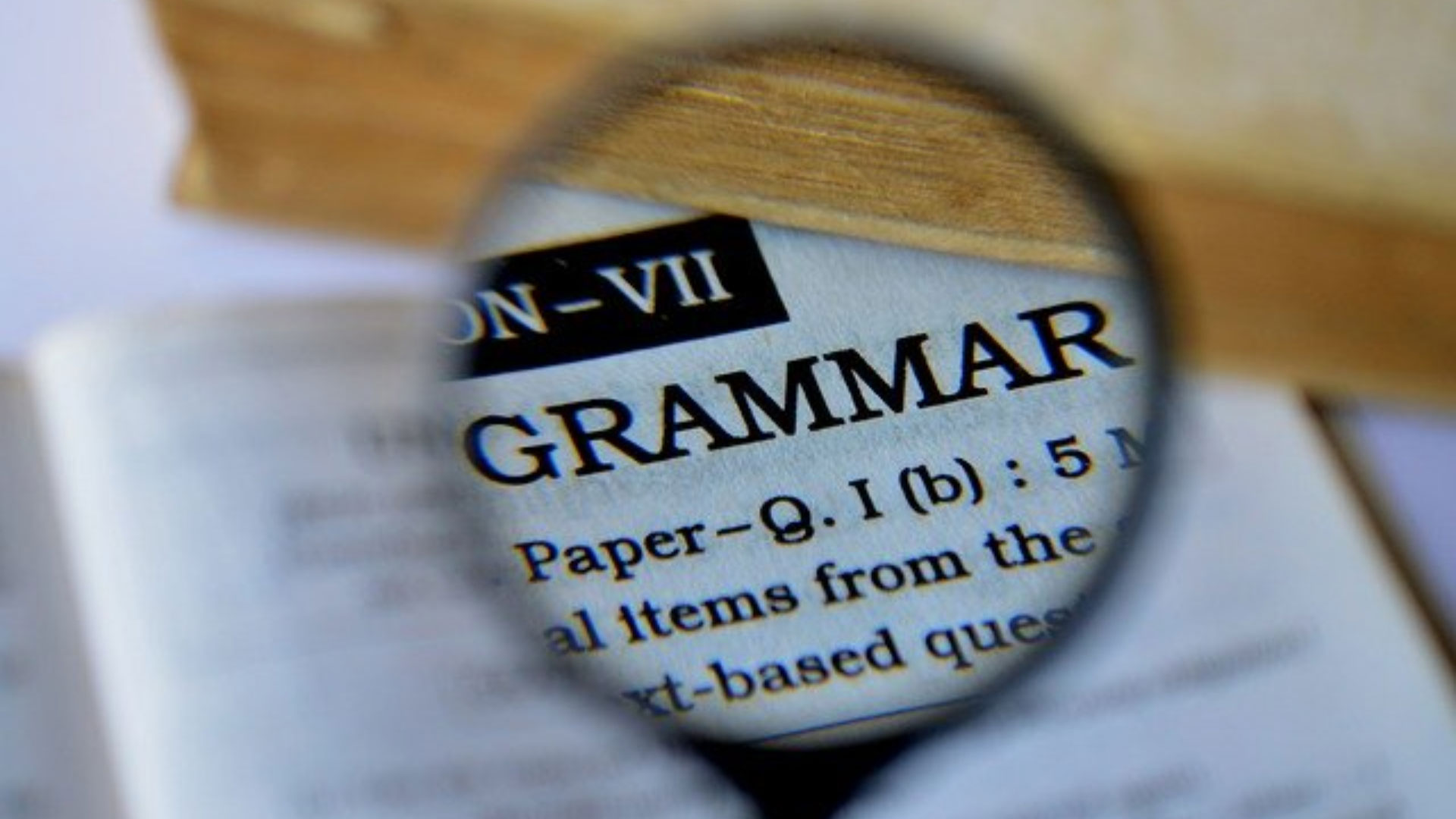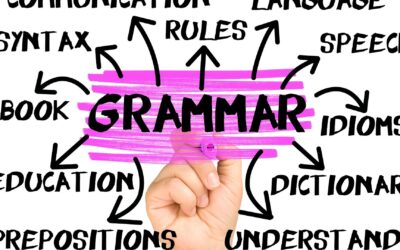Practice Worksheet
Transcript
Disclaimer
I am using an automatic transcript service as it is not possible for me to do it on my own and I cannot afford human transcription at the moment. The service claims to have about 95% accuracy, which means there will still be some mistakes, so my apologies for having a less than perfect transcript, but I hope I can afford human transcription soon and I will solve this problem. However, the service is pretty good, and the transcript is almost perfect.
Transcript
Welcome to a new episode of English plus podcast. This is grammar advanced, and today we will talk about bast simple and present. Perfect. When we use the past simple and present perfect specially, when we compare them to each other. Now, of course, this is grammar advanced, so we’re not going to talk about the simple uses or the basic uses of the past simple and the present.
[00:00:25] Perfect. But we will talk about the nuances we find. When using the past symbol and the present. Perfect. Now, before we start, let me remind you that you can find the transcript of this episode in a link. I will leave in the description, and then there’s also the link that will take you to Patreon, where you can become a patron of this show and support English plus podcast.
[00:00:45] And then you will get a PDF practice worksheet custom made for every single episode we release. Now with that being said, let’s start right away with a very first point. I would like to talk about when we want to compare the use of the past simple and the present. Perfect. Now, when we use time expressions that refer to the presence such as the, this morning, this week.
[00:01:07] This month and today we can use either the past simple or the present. Perfect. But here we have to consider how we think about this morning. Now, if we think about this morning as past or completed time period, then we use the past simple. But if we think about this morning as a time period, which includes the present moment, so this morning is not over yet.
[00:01:29] Then we use the present. Perfect. Let’s take a look at two examples and we will understand better how we can differentiate between using the past simple and the present. Perfect with these expressions. As we said this morning, this week, this month or today, for example, I can say I didn’t shave this morning and I can also say I haven’t shaved this morning.
[00:01:52] Both are fine, but the focus and the meanings. Are slightly different. So when I say I didn’t shave this morning, that means, or what I mean by that, that the morning is over and I didn’t shave. But when I say I haven’t shaved this morning, what I’m saying is it is still morning and I might shave later. So you see grammatically of course you can use both of them.
[00:02:13] It’s not about right and wrong. And this is something that you will find frequently talked about in grammar advanced. It’s not just about right and wrong. Maybe we do that in the elementary and the intermediate levels, but in advanced levels, we don’t only talk about right and wrong. We talk about the difference in meaning, because as I said, I didn’t shave, or I haven’t shaved this morning.
[00:02:36] Both are correct, but the meaning is slightly different. If I say I didn’t shave this morning, it’s over. I don’t have a chance to shave anymore. At least not this morning. But I haven’t shaved this morning. It’s still possible that I might shave later. So that was the first point I want to talk about. Now let’s move on to talk about the next point.
[00:02:54] Now we will talk about time, closes with sense now in a sentence, which includes a time clause with, since we generally prefer. A past simple verb in the time close and the present perfect verb in the main clause, the time close referred to a particular point in the past. That’s why we use, since for example, let’s take an example to know exactly what I mean by this.
[00:03:16] And we say, for example, since Mr. Dotson became president unemployment has increased now. Since Mr. Dotson became president, that’s a specific point, a particular point in the past. So obviously the best tends to use is the past simple. And we’re talking about unemployment has increased. Now, here we use the present.
[00:03:34] Perfect for that, because I’m talking about what has happened since that point until now, and it’s still happening. So he went, the point is specific like that in the past, we usually use. The past simple with sense and the present. Perfect. In the main clause, let’s take a look at another example. She hasn’t been able to play tennis since she broke her arm.
[00:03:57] Since she broke her arm, that is a particular point in the past. She broke her arm last week, last year. It doesn’t matter, but it is a particular point in the past. And that’s why we use the past simple, or we prefer to use the past simple. And she hasn’t been able to play because since that point in time in the past until now, and maybe in the future, or it might change, but we don’t worry about that since that point until now, she hasn’t been able to play tennis.
[00:04:25] And that’s why we use the present perfect with this main clause, but not that this is not always the case. We can still use the present perfect. In the time clause that contained since if the two situations we describe in the main clause and the time clause extend until the present. So sometimes it is obvious.
[00:04:44] It is clear that since we’re talking about a specific or a particular point in the past, and then we use the past simple and we’re fine, but sometimes both points in the main clause and in the sense clause or in the time close, obviously extend to the present. Let’s take a look at this example to understand the better.
[00:05:02] Have you met any of your neighbors since you’ve lived here? So here, we’re talking about the main clause that said, have you met any of your neighbors and that’s fine. The main clause we usually use present. Perfect. But let’s take a look at, since let’s take a look at the time clause. Since you’ve lived here, you have lived here because here you have lived here.
[00:05:22] It’s still going on. You still live here so we can use the present. Perfect. Even with sense, if we have the meaning to convey that the thing extends to the present that this action extends to the present you’ve lived here. Of course you started living here sometime in the past, and obviously you still live here.
[00:05:40] So it is not natural to use. You lived here because you lived here. What does that mean? Don’t live here anymore. It’s kind of confusing, but if we want to use the past simple in this sentence, for example, we can change live and use move, move. Yes. It’s a particular time in the past. We can say, have you met any of your neighbors since you moved here?
[00:06:00] Because moving that’s something that happened in the past. It’s over, but live is not. So in this case, we can use both the main clause and the time clause with sense. In the present. Perfect. So that was our second point. Now let’s move on to talk about another point. And that is when we use time clauses introduced by after when, until as soon as once, by the time and time expressions, like the minute, the second or the moment.
[00:06:29] Here when we use these time clauses, we said after when, until, as soon as once by the time or the minute, the second, the moment we can use both the past simple and the present. Perfect. But the meaning is completely different. When we use the best simple, obviously we refer to the past. That’s not a surprise, but remember that when you want to use these expressions to refer to future events, you can’t use the past simple.
[00:06:55] You can use the present. Perfect. If you want, let’s take a look at these examples and understand this even better. If we say after she left hospital, she had a long holiday. After she left, we used the past simple here. We’re talking about the past. She left hospital in the past. She had a long holiday that’s past, but we can say after Lucas has left school, he will be spending six months in India.
[00:07:20] So he, when I say after Lucas has left, we use the present. Perfect. So the meaning here we’re talking about is in the future. He will be spending six months in India. But even if you don’t have the continuation of the sentence, you still understand after Lucas has left school, I’m not talking about the past.
[00:07:38] I’m talking about the future. Now let’s take a look at another example. And this time I will use the minute because I told you, we have also the time expressions the minute, the second or the moment, which are kind of the same in this case, the minute I got the news about Ana, I called my parents. The minute I got the news.
[00:07:55] That’s past simple. So we’re definitely talking about the past. I’ll contact you the minute I’ve got my exam results. So the question here, did you get your exam results? No. Have you gotten them yet? No. That’s why I’m telling you. I’ll contact you the minute I’ve got my exam results and that’s why I’ve got here refers to the future.
[00:08:17] So as you can see here, we’re not talking about right and wrong. We’re just saying that both are fine. So if you think about grammar mechanically, you won’t get far. And to be honest, you won’t be able to create those sophisticated sentences and use them in your own writing or speaking here. We’re not talking about right and wrong as much as we’re talking about what does this mean?
[00:08:39] And what does that mean? And we think about grammar. As tools we use to express the meanings we have not the other way round. So with that being said, I’ll have to tell you that in the time clauses incentives like this, it is possible to use the past perfect instead of the past simple. And it is possible to use the present simple instead of the present.
[00:09:00] Perfect. So with these time expressions, if we want to talk about the past, we can use the past. Perfect. Instead of the past simple, both are fine with the same meaning. And we can use the present simple instead of the present. Perfect. And both have the same meaning now of course, the past perfect. And the present.
[00:09:19] Perfect. They kind of focus on the completion of the act, but this is something we will focus on in a later lesson. But now, as I said, we can use the best perfect instead of the past simple and the present simple instead of the present. Perfect. So let’s take a look at this example we just had earlier.
[00:09:34] After she left hospital that we used here, the past simple. And we said, here we are talking about the past. Then we said, after Lucas has left school and here we said, we are referring to the future, but of course we can say after she had left hospital, she had a long holiday and that is the best perfect, of course.
[00:09:53] And that’s completely fine. And also we can say after Lucas leaves school, Present simple instead of present. Perfect. And it’s also correct. And here after Lucas leaves school, he will be spending six months in India. So with that being said, let’s move on to talk about the next point. And that is when we use the present.
[00:10:12] Perfect. And the past simple in news reports. Now there is nothing like there’s a rule or something that governs news reports and they should use this tense. So that tense, of course they can use all tenses based on what they’re trying to say. But usually in news reports you will read about or hear recent events introduced with the present.
[00:10:31] Perfect. And then the past simple or other past sensors are used to give details. That’s a common way. News people do it. They introduce the topic or they introduce what they’re trying to say with present. Perfect. And then they continue with details in the past, mostly past simple, but other past tenses are possible as well.
[00:10:51] So let’s take a look at this example, a Russian spacecraft has returned safely to earth with its two passengers. So here as an introduction to what I’m trying to say in this news report, I said has returned. Well, obviously it’s returned it’s past, but because it’s the introduction, I can use the present perfect.
[00:11:10] In this context, of course. And then I will move to some details and say us astronauts, Scott keen and Russian cosmonaut, Olga Colleary landed in the early hours of Wednesday. Now here details that’s fast and that’s the usual way. To use it in news reports. Let’s take a look at another example, an American woman has become the first person to make 2 million contributions to Wikipedia.
[00:11:33] So it has become here. I introduced the topic or I introduced the report actually. And then I will go to details. Esther Miller began editing the site eight years ago. I’m talking about details. I use. The past to talk about details and that’s the usual way. So that was about news reports and how we use the present perfect, or the past simple in news reports.
[00:11:55] And now let’s move on to talk about the last point we have for today. And that is after some patterns and this pattern is after it, this or that is, or will be the first time. This expression. We generally use the present perfect. After these expressions. We say it is the first time, or it will be the first time, or this is the first time, or that will be the first time, et cetera.
[00:12:19] After this expression, we usually use the present perfect in the next clause. So let’s take a look at these examples. So you understand better. What we talking about here. For example, we say that’s the first time I’ve seen Jan look embarrassed. That’s the first time I’ve seen her look embarrassed. Or we can say it won’t be the first time she has voted against the government.
[00:12:42] It won’t be the first time she has voted. So after these expressions, we usually use the present. Perfect. But of course, pay attention that after the same expression, when we use was. We usually use the past. Perfect. So if you say it was the first time, or this was the first time you don’t use the present.
[00:13:00] Perfect. Of course we usually use the past. Perfect. Like when we say it was the first time I talk to Dimitra outside the office, I had talked to Dimitra outside the office. Now with that being said, we talked about the special uses or those nuances that are related with the past simple and the present.
[00:13:18] Perfect. I hope you found the information I shared with you about the best simple and the present. Perfect, useful. I hope you learn new things. Don’t forget that you can find the transcript of this episode in a link. I will leave in the description and you can also get the PDF practice worksheet for this episode on for every single episode.
[00:13:36] If you decide to become a patron of the show. And support us on Patreon. I will leave a link to that as well. In the description with that being said, this is your host, Danny. Thank you very much for listening to another episode from English plus podcast. I will see you next time.










1 Comment